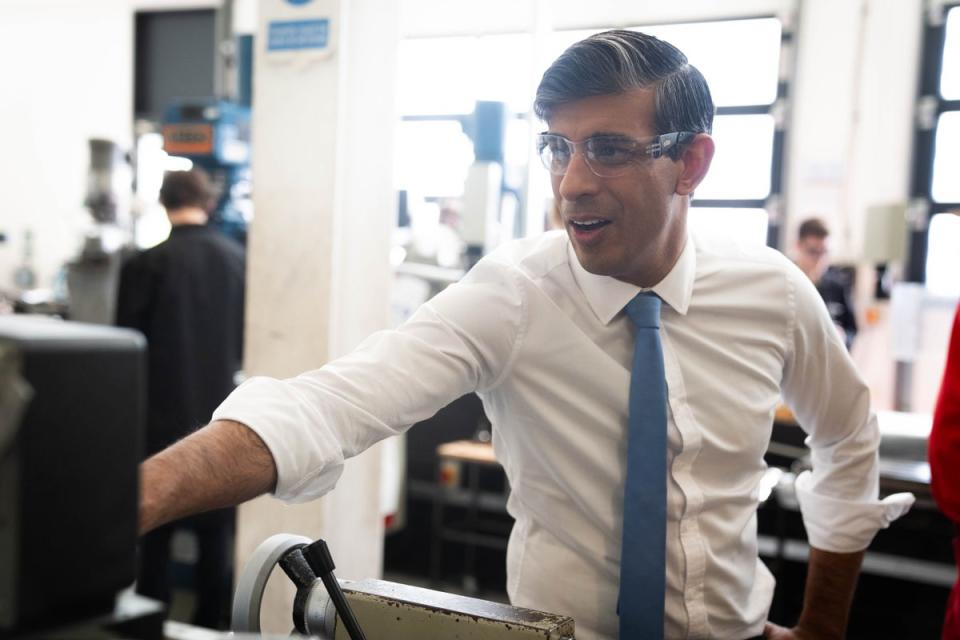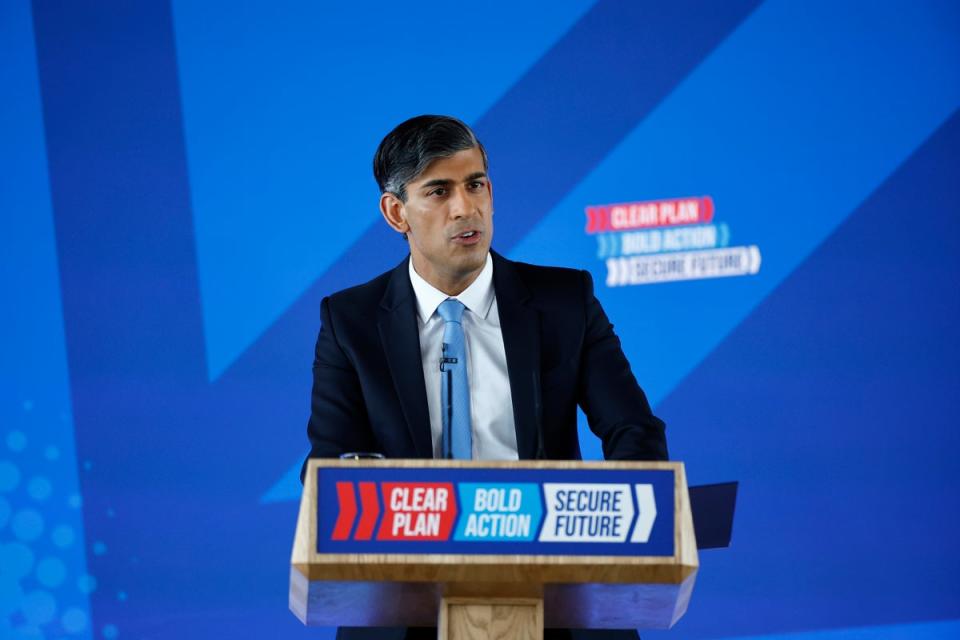Rishi Sunak’s Conservative manifesto: Do the costs and savings add up?
Rishi Sunak has launched a tax-cutting general election manifesto in a last-ditch attempt to revive the Conservative Party’s fortunes.
It remains to be seen whether the prime minister’s plans will be enough to overturn a 21-point gap between the Tories and Labour in the polls.
But if they are, top economists have warned Mr Sunak he faces a tough task to find the cash to back up his pledges. Sir Keir Starmer has accused the PM of serving up a “Jeremy Corbyn-style manifesto… everything into the wheelbarrow" without explaining how to pay for it.
Click here for our live coverage of the general election campaign.
But the Union Jack-clad manifesto came with a six-page costing document and a promise from the PM that his sums add up.
The Independent has looked at what Mr Sunak is offering voters… and how it will be paid for.

The headline-grabbing measures from the PM’s manifesto were on tax. He promised to continue with Conservative plans to abolish employer national insurance contributions in the long term, with a 2p cut pencilled in by April 2027.
It also promised to abolish the main 6p rate of national insurance contributions for the self-employed by 2029.
By 2030, the two measures combined are set to cost the Treasury just shy of £13bn.
Other tax bungs unveiled in the manifesto included child benefit reforms, the new “triple-lock plus” for pensioners, axing stamp duty for first-time buyers and scrapping capital gains tax for homes sold to tenants.
In total, the tax giveaways amount to £17bn per year by 2030.
It’s a hefty price tag, but the document also sets out the Tory plans to pay for them. The Conservatives argue they can raise £6bn a year by 2030 by clamping down on tax avoidance, a promise also being relied on by Labour to fund Sir Keir’s election pledges.

Mr Sunak is also promising £12bn of savings per year through reforming the benefits system – although the small print stresses this is “a reasonable estimate” and not based on economic forecasts.
Combined, the savings amount to £18bn, enough to cover the party’s promises on tax.
The Tories also set out how they plan to pay for spending pledges scattered throughout the manifesto, such as national service for 18-year-olds and boosting defence spending to 2.5 per cent of GDP by 2030.
The main savings come from major cuts to the civil service headcount, which the party says will save just under £4bn, and so-called “quango efficiencies”, amounting to £1.3bn.
Tory spinners insisted the figures set out in the costing document were perfectly sensible. But senior economists poured cold water on the PM’s plans, expressing heavy scepticism about the funding.

The Resolution Foundation said the welfare funding cuts would “not be achievable over the next parliament”, blowing a £12bn hole in the manifesto just hours after it was published.
The think tank also pointed to £21bn of spending cuts pencilled in after the election, which both parties have so far refused to engage with on the campaign trail.
It said Mr Sunak’s promised policies are being funded “through £12bn of poorly defined benefit cuts, and an unspecified £6 billion clampdown on tax avoidance”.
Chief executive Mike Brewer said: “There are big questions over whether doubling down on firm tax commitments, funded by pledges to massively cut spending in record time, really passes the plausibility test, or whether this approach answers the big economic challenge Britain faces on growth.”
The influential Institute for Fiscal Studies agreed, saying the Tories have promised £17bn in “definite giveaways” after the election “paid for by uncertain, unspecific and apparently victimless savings”.
Director Paul Johnson said: “Forgive a degree of scepticism.”
Mr Johnson, who has accused both parties of engaging in a “conspiracy of silence” about planned post-election spending cuts, repeated his warnings about the shortfalls which will need to be addressed.
He said: “This manifesto remains silent on the wider problems facing core public services – and if you think those civil servants, management consultants and quangos were delivering anything, these plans imply an even tougher time than set out back in March.”

 Yahoo News
Yahoo News 
